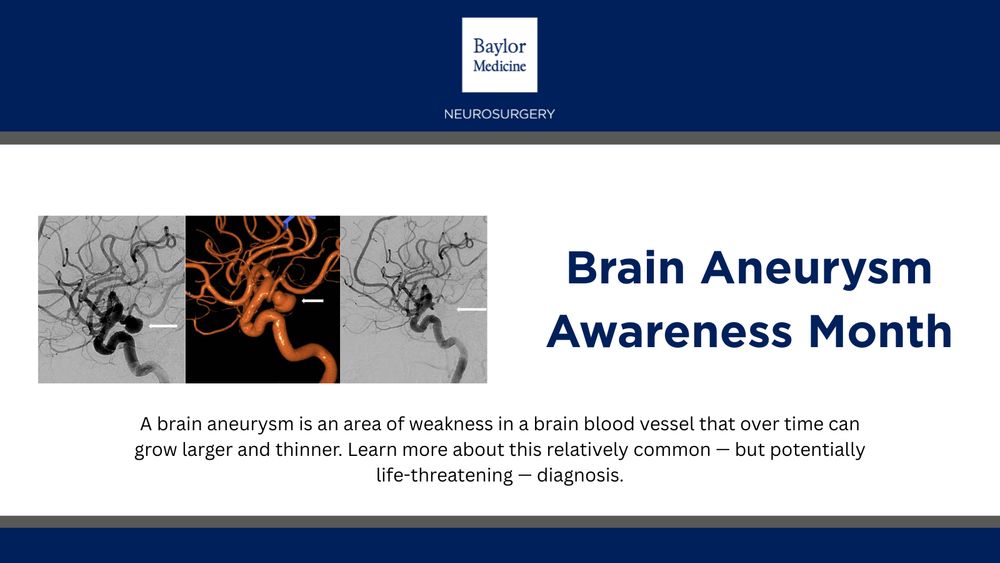BCM Neurosurgery
@bcmneurosurgery.bsky.social
99 followers
32 following
77 posts
The Department of Neurosurgery at Baylor College of Medicine is committed to excellence in teaching, research, and patient care.
Posts
Media
Videos
Starter Packs
Reposted by BCM Neurosurgery
Reposted by BCM Neurosurgery





















































